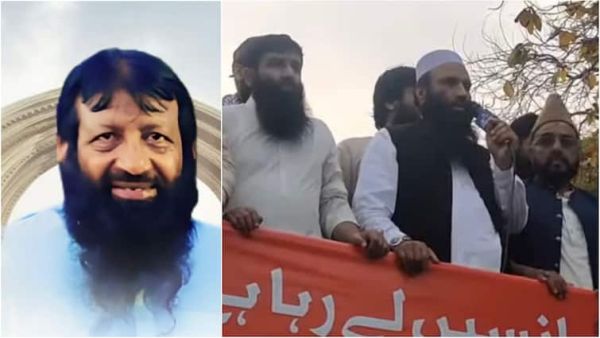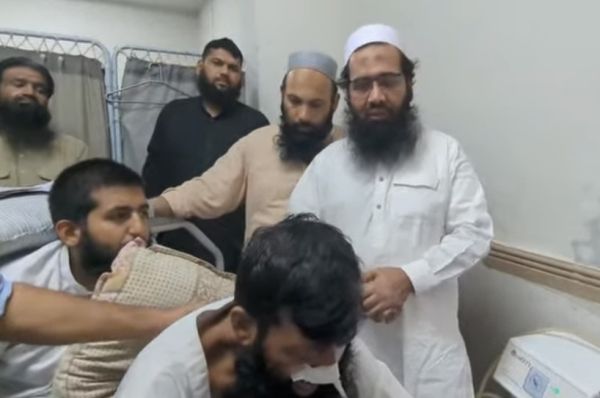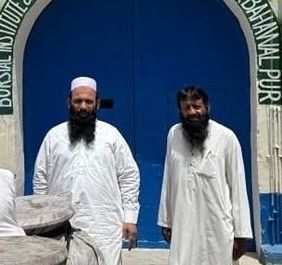
A top operative of Pakistan’s state-sponsored terror group Lashkar-e-Taiba (LeT), Abdul Aziz, who headed the outfit’s fundraising front ‘Khidmat-e-Khalq’ in Bahawalpur, has died at a hospital in Pakistan’s Punjab province. Aziz was a close aide of LeT Deputy Amir Saifullah Kasuri and played a pivotal role in collecting funds under the guise of charity.
He led Khidmat-e-Khalq in Bahawalpur, an organisation floated by LeT to solicit donations for “social service” while secretly channelling money into terror financing operations.
From FIF to Khidmat-e-Khalq: Evolving Fronts of Terror Financing
LeT has long relied on charitable fronts to fund its terror operations. Until 2020, it operated under the banner of ‘Falah-e-Insaniyat Foundation’ (FIF), which was later banned after India provided irrefutable evidence to the United Nations and the United States linking FIF to LeT.
Following the ban and under pressure from the Financial Action Task Force (FATF) to avoid greylisting, Pakistan’s Inter-Services Intelligence (ISI) advised LeT to create a new front—thus emerged Khidmat-e-Khalq.
Though Abdul Aziz led only the Bahawalpur chapter, it was considered a crucial fundraising node. Bahawalpur ranks second only to Lahore in terms of donations collected. According to sources, Aziz managed over PKR 200 million annually from the region. His prominence within LeT’s hierarchy is evident from the fact that globally designated terrorist Hafiz Abdur Rauf, former head of FIF, was by his side during his final days in the hospital.

Three-Tier Funding Model: Gaza, Kashmir & Eid Hides
Intelligence sources reveal that LeT’s current funding operations function through three key tiers:
1. Donations in the name of Gaza
2. Collections for “resistance” in Kashmir
3. Procurement and sale of animal hides during Eid-ul-Adha, which are later sold to leather traders, generating crores in revenue.
These funds are not collected under the LeT or Jamaat-ud-Dawa banner directly. Instead, they are funnelled through Khidmat-e-Khalq to escape international scrutiny. The money is subsequently used to procure weapons and establish new terror training centres and camps.
Low-Profile Faces, High-Impact Roles
Aziz belonged to the second generation of LeT operatives and was among the inner circle of Saifullah Kasuri, who has assumed a central role in the group following the detention of Hafiz Saeed. Prior to his leadership of Khidmat-e-Khalq, Aziz also headed LeT’s Al-Aqsa centre in Bahawalpur, where he was involved in indoctrinating children with jihadist ideology.

Despite operating for over four years, Khidmat-e-Khalq has evaded international sanctions—unlike FIF. This is primarily due to LeT’s strategic decision to staff the organisation with low-profile operatives like Abdul Aziz, who remained off the global radar. Although he received training at LeT’s Muridke headquarters, he was kept away from direct involvement in attacks, making it difficult for foreign intelligence agencies to designate him as a terrorist.
The death of Abdul Aziz may temporarily impact LeT’s financial operations in the region. However, sources say the group is already preparing to reposition another low-profile yet efficient fundraiser to sustain the covert financial lifeline that powers its terror machinery.
-
Make sago milkshake, easy recipe and benefits in 5 minutes for energy in Sawan Monday fast

-
5 Quiet Ways Frugal People Make Their Lives Feel Rich That Cheap People Haven’t Quite Mastered

-
The Tarot Horoscope Has A Message For Your Zodiac Sign On July 22

-
5 Smart Kitchen Appliances You Should Add To Your Counter (According To Users)

-
Railway’s big step: AI cameras will be installed at 7 railway stations including New Delhi to protect women
